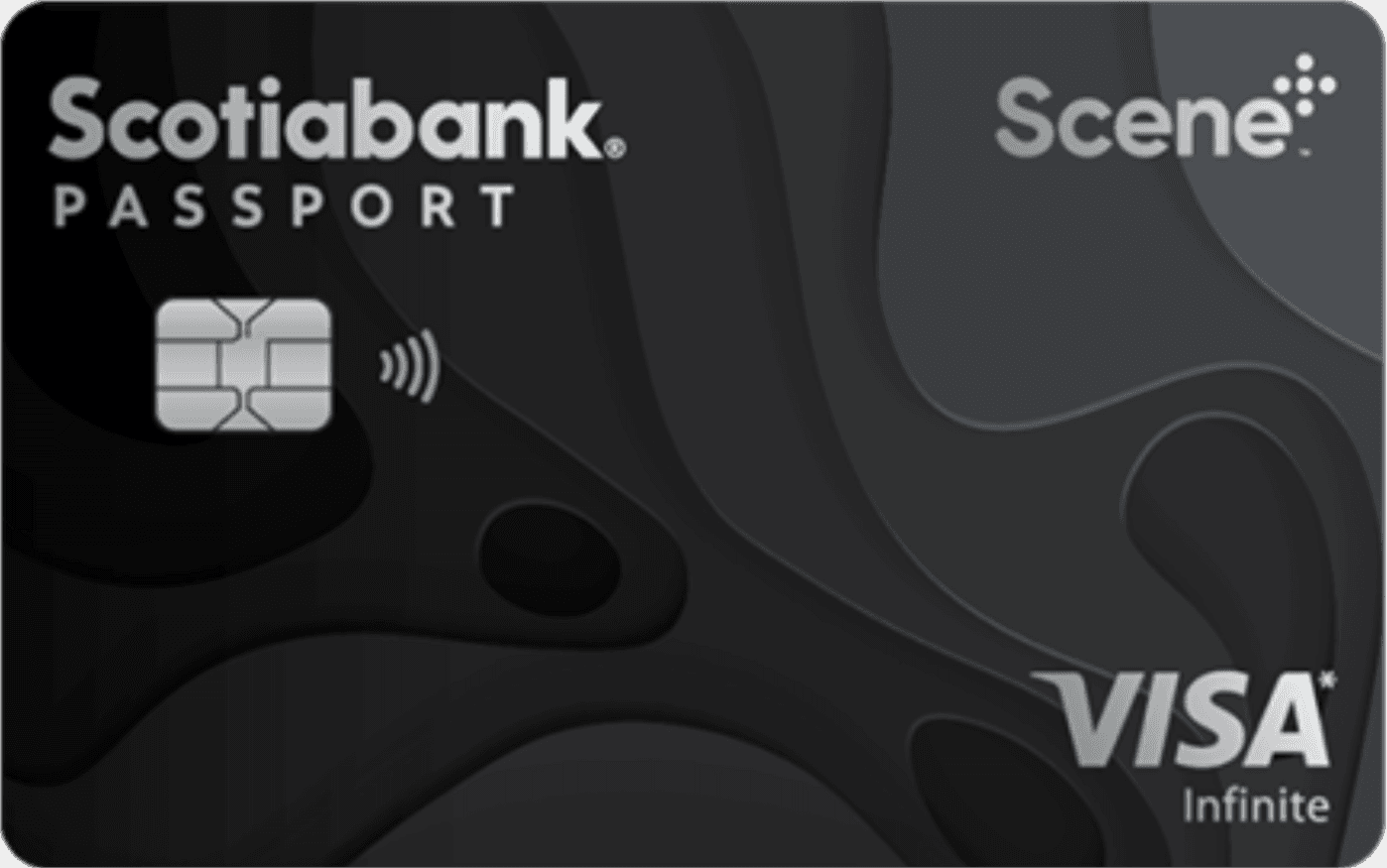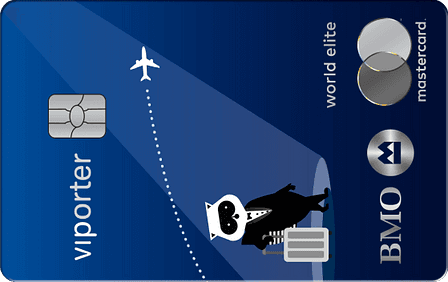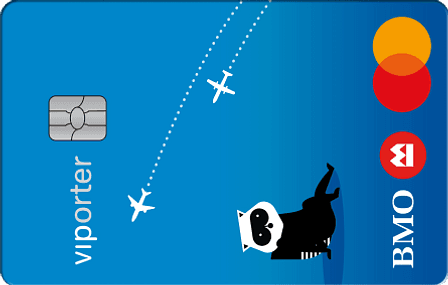
How to Pay Bill from Credit Card? The Ultimate Guide
Abid Salahi
Author5 min read
Today you're going to see why paying your bills using a credit card is an excellent choice.
Why?
For starters, because you can earn a lot of cash back and points.
Specifically, I'll show you the advantages of paying bills from credit cards and how to maximize them!
But first
What kind of bills can I pay using credit cards?
The list of bills that can be paid via credit cards is growing year by year.
Some of the most common ones that may accept credit cards are:
- Subscription services - Netflix, YouTube, Spotify and more.
- Cell phone - Rogers, Bell, Fido and more.
- Internet - TELUS, Shaw and more.
- Cable TV - TELUS, Bell and more.
- Insurance - Car, house, life, and more.
- Utilities - Electricity, heat and more.
One thing to note is that not all businesses accept credit cards for bill payments.
Make sure to check that the bill you are trying to set up credit card bill payments for accepts your card type (Visa or Mastercard or Amex).
For instance, the payment options for a Costco membership bill are limited to Visa and Mastercard only.
Now that you have a list of bills in mind...
Why should I pay bills from a credit card?
There are 3 simple reasons to do so:
1. Earn rewards
Almost all credit cards come with some form of cash back or points that can be earned.
In comparison to doing bank transfers or sending cheques, I think it's a much better deal.
Your bill payments can add up to a lot over time.
So why not maximize your rewards by using the right credit cards to pay them off.
Imagine all the travel points you could earn by just simply paying your bills every month.
Now you're probably wondering... which credit card will give you the most reward for recurring bill payments? We go into great detail about this question in best credit card for recurring bill payments if you are interested to know more.
Want to earn $1,000 MORE in credit card rewards?
Grab your free guide to learn how to maximize the credit card rewards you earn
.png&w=3840&q=100)
But for now, here are 2 of your best options:
Easy to qualify, no fees and good cash back
go to Tangerine's website
I currently have or may soon have a Tangerine Savings account
Welcome Bonus
10% Cash Back up to $100 value
Annual Fee
$0
Interest Rates
20.95%* / 22.95%*
While we think Tangerine isn't the best single credit card to own, it's still a valuable card to have in your arsenal for maximizing your rewards. It offers one of the highest cashback rates for pharmacy and recurring bill payments, areas where your other credit cards might not provide significant rewards. This card only requires a Fair credit score, making it an excellent choice for people who don't have a high credit score yet.
Pros
- Allows you to change the categories, and you get a 2% reward depending on how your spending is changing every 90 days.
- 2% cashback on recurring Transactions and pharmacy purchases. One of the highest cashback rates on these categories among credit cards in Canada.
- Has cashback on Furniture and Home Improvement categories. Two categories that are not covered by any other card in Canada.
- Easy credit score requirements needed for this card.
- Overall, it is a good no-annual-fee cashback credit card, especially if you have a Tangerine Savings account.
Cons
- Insurance coverage is the most basic.
- Very low cashback rate on the other categories not selected.
Rewards
- 2% on the choice of two categories chosen from the 10 offered by Tangerine
- 0.5% cashback on all other credit card purchases.
Insurance
Coverage
Purchase Protection
90 daysExtended Warranty
Up to a year
Eligibility
Credit Score
GoodAnnual Income
N/A
The Tangerine Money-Back Credit Card offers up to 2% in cash back rewards on 3 categories of your choice without any particular limits.
You can choose "Recurring Bill Payments" as one of your chosen categories and earn 2% every time you pay a pre-authorized bill.
And what makes this car even better is that it comes without an annual fee.
However, do you prefer a more premium credit card instead with a higher cash back rate?
High cash back, generous welcome bonus and great insurance
go to Scotiabank's website
Welcome Bonus*
10% Cash Back (up to $200 value)
Annual Fee*
$120 $0
Interest Rates
20.99% / 22.99%
The 4% cashback offered on groceries and recurring purchases is the highest among all other credit cards. With the first year's annual fee waived, and with the right transactions used on this credit card, a high amount of cashback could be earned.
Pros
- Highest Cashback rates on Groceries and Recurring purchases compared to other cashback credit cards.
- High insurance coverage.
- First year annual fee waived.
Cons
- The base cashback rate (1%) is low for most high spent categories, especially after the first year when the card's annual fee kicks in.
Rewards*
- 4% cashback on groceries, recurring payments (maximum $1000 cashback per year)
- 2% cashback on gas, daily transit (maximum $500 cashback per year)
- 1% cashback on all other credit card purchases (unlimited).
Insurance*
Coverage*
Mobile Device Insurance
$1,000Travel Accident
$500,000Emergency Out of province Medical
15 daysTrip Interruption
$2,000Trip Cancellation
$1,500Flight Delay
$500Lost or Stolen Baggage
$500Baggage Delay
$500Car Rental Damage & Theft
48 daysPurchase Protection
90 daysExtended Warranty
1 year
Benefits*
Details*
Car Rental Discount
25% off base rate of Avis Rent A Car and Budget Rent A CarVisa Infinite Exclusive Benefits
Yes
Eligibility*
Credit Score
GoodAnnual Income
$60,000 personal or $100,000 household
The Scotia Momentum Visa Infinite Card comes with a whopping 4% cash back on all your recurring bill payments and subscriptions.
So, for example, if your total monthly bill amount was $500, you'd save $20 just by using this card.
Not to mention that the 4% cash-back rate also applies to your grocery purchases!
This credit card also comes with fantastic travel insurance coverage if you travel frequently.
However, to qualify for this credit card, you'll need to have a minimum individual income of $60,000 or a household income of $100,000.
So make sure you can qualify before you apply for it!
2. On-time and automatic payments
Most bills can be set up to be taken care of as pre-authorized payments using credit cards.
These will be done on a specific day of the month based on the billing company's scheduling.
This will help you avoid any late fee payments and save you a ton of time and energy.
I call it the set it and forget it strategy since you won't have to worry about it every month.
3. Simpler expense tracking
Do you also find tracking your bills and expenses a challenging task?
But if all your bills went through a credit card, you'll have a much easier time looking over your monthly statements and tracking them alongside other expenses.
All your bills in one place would create a more organized system.
It will also help you manage your finances more efficiently and have more control over them.
This all sounds really great, but...
What's the catch?
There are 2 key things to pay attention to when paying your bills from credit cards:
Extra hidden fees
Some credit cards may treat a bill payment as a cash advance instead.
Cash advances usually incur either a flat fee or percentage of the transaction which in turn is subject to a higher interest rate that goes in effect immediately.
In these cases, avoid credit cards with hidden fees and switch to ones that won't charge you a fee or damage your credit score.
Credit utilization
Credit utilization is an essential contributing factor to your credit score.
In simple terms, it measures how much of your total credit limit is currently being used.
The optimal ratio to keep your utilization at is 30% or lower.
Investopedia shows a great example of how to calculate your utilization.
I mention credit utilization because your monthly expenses can vary month to month while your recurring bill payments might remain the same.
That means you need to ensure your pre-authorized bills don't exceed your credit limit and account for your varying expenses.
Conclusion
So let's summarize what we just learned.
If you have any bills that accept credit card payments, make sure to either manually pay them using your credit card or setup pre-authorized payments.
Check for any hidden fees your credit card may charge you for before you pay any bills.
Keep track of your monthly bills and expenses, and do not over-utilize your credit cards to maintain a good credit score at all times.
Let me know in the comments if this was helpful!
Trending Offers

Scotiabank Passport® Visa Infinite* Card

BMO VIPorter World Elite Mastercard®∗

Scotia Momentum® Visa Infinite* Card

BMO VIPorter Mastercard®∗

Scotiabank Value® Visa* Card

